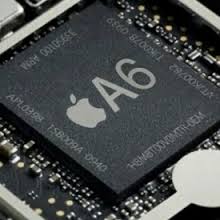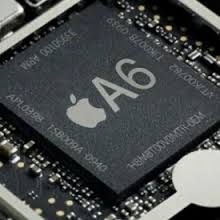
Apple has been charged and found guilty of illegally using technology that was owned by the University of Wisconsin-Madison's licensing arm.
A U.S. jury on Tuesday found the iPhone maker guilty and Apple Inc could be facing up to $862 million in damages.
The court viewed that the technology that Apple was using was being inserted in most popular of its devices.
The patent, which improves processor efficiency, was valid as noted by the jury in Madison, Wisconsin. The trial will now move on to determine how much Apple owes in damages.
There were no immediate comments from both the Wisconsin Alumni Research Foundation (WARF) and Apple.
Alleging infringement of its 1998 patent for improving chip efficiency, WARF had sued Apple in January 2014.
The jury debated and discussed the allegations against Apple that it was using its A7, A8 and A8X processors that are found in the iPhone 5s, 6 and 6 Plus, as well as several versions of the iPad, violate the patent.
According to court papers, Cupertino, California-based Apple denied any infringement and argued the patent is invalid. Apple previously tried to convince the U.S. Patent and Trademark Office to review the patent's validity, but in April the agency rejected the bid.
Apple could be liable for up to $862.4 million in damages, according to a recent ruling by U.S. District Judge William Conley, who is presiding over the case.
Liability, damages, and finally, whether Apple infringed the patent willfully, which could lead to enhanced penalties were the three phases that Conley had scheduled the trial in to.
WARF used the patent to sue Intel Corp in 2008, but the case was settled the following year on the eve of trial.
Apple was faced with a second lawsuit against itself by WARF last month where the university alleged that the company's newest chips, the A9 and A9X, used in the just-released iPhone 6S and 6S Plus, as well as the iPad Pro also violated the patents.
The case is Wisconsin Alumni Research Foundation v. Apple Inc in the U.S. District Court for the Western District of Wisconsin, No. 14-cv-62.
(Sources:www.reuters.com & www.theguardian.com)
A U.S. jury on Tuesday found the iPhone maker guilty and Apple Inc could be facing up to $862 million in damages.
The court viewed that the technology that Apple was using was being inserted in most popular of its devices.
The patent, which improves processor efficiency, was valid as noted by the jury in Madison, Wisconsin. The trial will now move on to determine how much Apple owes in damages.
There were no immediate comments from both the Wisconsin Alumni Research Foundation (WARF) and Apple.
Alleging infringement of its 1998 patent for improving chip efficiency, WARF had sued Apple in January 2014.
The jury debated and discussed the allegations against Apple that it was using its A7, A8 and A8X processors that are found in the iPhone 5s, 6 and 6 Plus, as well as several versions of the iPad, violate the patent.
According to court papers, Cupertino, California-based Apple denied any infringement and argued the patent is invalid. Apple previously tried to convince the U.S. Patent and Trademark Office to review the patent's validity, but in April the agency rejected the bid.
Apple could be liable for up to $862.4 million in damages, according to a recent ruling by U.S. District Judge William Conley, who is presiding over the case.
Liability, damages, and finally, whether Apple infringed the patent willfully, which could lead to enhanced penalties were the three phases that Conley had scheduled the trial in to.
WARF used the patent to sue Intel Corp in 2008, but the case was settled the following year on the eve of trial.
Apple was faced with a second lawsuit against itself by WARF last month where the university alleged that the company's newest chips, the A9 and A9X, used in the just-released iPhone 6S and 6S Plus, as well as the iPad Pro also violated the patents.
The case is Wisconsin Alumni Research Foundation v. Apple Inc in the U.S. District Court for the Western District of Wisconsin, No. 14-cv-62.
(Sources:www.reuters.com & www.theguardian.com)





